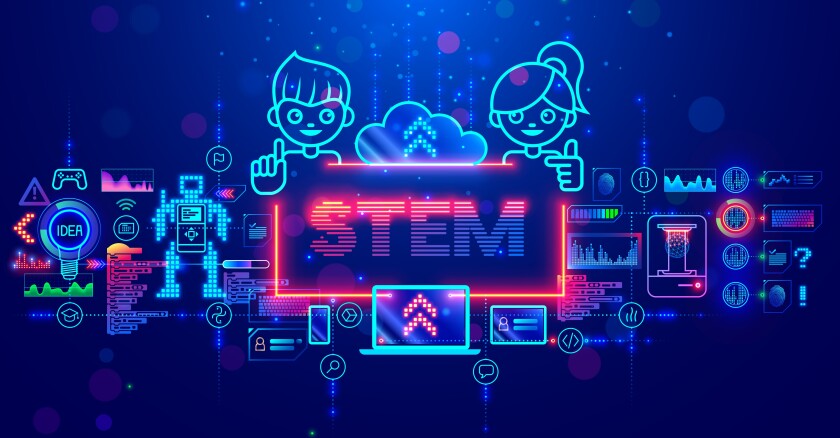They are among 100-plus project finalists from across the nation who will attend the U.S. Department of Education’s first-ever National STEM Festival from April 11-13 in Washington, D.C. Selected students from a pool of 2,549 applicants spanning grades six through 12 emerged from the National STEM Challenge competition late last year.
Jenny Buccos, co-founder and CEO of the educational media company EXPLR, said EXPLR will use corporate and philanthropic sponsors to cover all travel and accommodation expenses for the student attendees and their parents or caregivers. The purpose of this event is not to pit students against each other but to recognize their work and promote STEM as relevant and relatable fields of study.
“We want to elevate and celebrate student excellence,” Buccos said. “They are done having to compete. There'll be no No. 1 winner.”
More than 1,000 volunteers who have STEM experience, from 25-year-old teachers to 80-year-old retired biomedical engineers, were involved in the project selection process at the challenge events. To get these experts, Buccos said, “there was a lot of cold calling.” Many of them will attend the April event, along with members of Congress, representatives from several federal agencies, and leaders and innovators from technology corporations.
In addition to displaying their winning projects, the students will participate in roundtable discussions with the adult professionals.
“It’s really important for adults to listen to kids about the future of STEM education,” said Buccos, who has been active in the STEM space for more than 20 years now. “That’s really unique.”
Buccos said several high school students scheduled to attend this event have pending patents on their ideas. STEM events like this, she added, go beyond just recognizing high-achieving students for what they’re doing in the moment — they're about taking student ideas seriously and collaborating with them for the future.
According to the 2024 National STEM Festival website, the themes on which finalists from the STEM competitions based their projects included environmental stewardship, future foods, health and medicine, powering the planet, space innovation, and tech for good. More information on the student innovators will be added to the site Feb. 12.
More than half the applicants from the National STEM Challenge represented low-income school districts, Buccos said, and many students were inspired by events in their own lives. One student has a grandfather battling Parkinson’s disease. Another student, who lives in a low-income area where hunger is a problem, worked on a technology that could extend the life of shelved foods. And for the tech-for-good theme, there was strong interest in using artificial intelligence to prevent car accidents involving motorists, pedestrians and animals.
Editor's Note: A previous version of this story said finalists from the NASA TechRise Student Challenge and the Congressional App Challenge were invited to the National STEM Festival, and that EXPLR would cover travel and accommodation expenses for student attendees. This information was attributed to Jenny Buccos. She has since clarified that students from competitions other than the National STEM Challenge will be invited to the festival, but she did not know whether the two examples she provided as possibilities — finalists from the NASA TechRise Student Challenge and the Congressional App Challenge — were actually invited. She did not intend for them to be counted among the undefined group of students whom EXPLR will send to the event.















